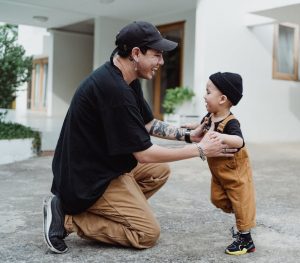Much like an ADHD diagnosis, an autism diagnosis can transform a child’s educational and personal life. In BC, children with autism are eligible for extra supports, making it worthwhile to pursue a formal diagnosis. Learn what to do if you suspect your child has autism as we explore pathways to diagnosis and what to watch out for along the way.
What Is Autism?
Autism Spectrum Disorder (ASD) is a neurodevelopmental disorder that impacts the development and function of the brain in the areas of social skills, communication, and behaviour.
There are two main symptom types in ASD, which can be seen as early as sixteen months:
• Social communication challenges
• Repetitive behaviors & restricted interests
These symptoms impact daily life, persist as the individual ages, and can change over time.
Early detection and treatment of autism have been shown to lead to significant improvements in cognitive functioning, social behaviour, adaptive behaviour, and language skills.
Is My Child Autistic?
If you’re wondering if your child is autistic, it’s important to note that no single set of symptoms is universal.
Social communication challenges in ASD present as:
• Delayed or unusual language use
• Limited gestures or mismatched nonverbal cues
• Avoiding or unusual eye contact
• Difficulty with conversation rules or sharing interests
• Struggling with social awareness and relationships
Repetitive behaviours can look like:
• Repetitive movements or speech
• Insistence on routine or rigid thinking
• Intense, specific interests
• Unusual sensory sensitivities
Ask yourself if the behaviours reflect your child’s ‘usual’ behaviours, not if a behaviour is ‘rare’ (e.g., you’ve seen it only once or twice).
The Modified Checklist for Autism in Toddlers, Revised (M-CHAT-R) is a screener that will ask a series of 20 questions about your child’s behaviour. It’s intended for toddlers between 16 and 30 months of age. The results will let you know if a further evaluation may be needed. You can use the results of the screener to discuss any concerns that you may have with your child’s healthcare provider and/or educator.
What is the Autistic Spectrum?
Autism is said to be on a spectrum. The two ends of the spectrum are usually identified according to the level of support the autistic person needs. For example, a person with autism might be non-verbal and need assistance with daily tasks like getting dressed (high needs) while another might be more self-sufficient (low needs). This does not mean that one is more autistic than the other—the experiences are simply different.
How to Get an Autism Diagnosis in BC
In BC, the most common route to an autism diagnosis starts with your primary care physician. Schedule an appointment with your family doctor and tell them why you suspect your child might have autism. You can suggest that you’ve used the Modified Checklist for Autism in Toddlers, Revised (M-CHAT-R) and have seen some behavioural patterns that you’d like explored. If you don’t have a family doctor, you can apply for one via the Health Connect Registry.
Your doctor will then refer you to the nearest facility associated with the BC Autism Assessment Network (BCAAN). There your child will be assessed by an approved pediatrician, psychologist, or psychiatrist. The assessment is thorough and will require more than one appointment to complete.
Assessments through the BCAAN are free, and as such the waitlists are quite long. If you would like to avoid waiting, there are private psychologists who offer autism assessments for a fee. You can expect to pay around $3,000 for an autism diagnosis this way. To find a private practitioner who can offer an assessment, contact AutismBC—they will provide you with a list.
If you do elect for a private assessment, make sure that the psychologist follows the autism diagnosis standards and guidelines. Children with autism are eligible for yearly government funding, but only if the assessment team follows those guidelines. The psychologist must also fill out the form for private autism assessment—ensure that they do!
Funding for Children with Autism
The government of BC offers annual funding for children with autism diagnoses according to age. Children under the age of six are eligible for up to $22,000 per year while children between the ages of six and eighteen are eligible for up to $6,000 per year. The yearly allowance renews on the child’s birthday.
Funding can be used to pay for services related to the challenges that come with an autism diagnosis. These services include therapeutic counselling, bookkeeping, life skills programs, and tutoring. At Tutoring…With A Twist*, we’re happy to help you apply for funding to pay for tutoring—contact us for details!
To qualify for funding, your child must have an autism diagnosis approved by the BCAAN. If you have sought a private diagnosis, you will need the private assessment form. If you are new to BC and have received a diagnosis in another province, you will need the form for confirmation of previous diagnosis.
 How Can I Help My Child with an Autism Diagnosis?
How Can I Help My Child with an Autism Diagnosis?
As autism is a spectrum, it manifests differently in each individual. This means there is no single way to treat autism or “cure” it. However, symptoms can be managed by getting to know them closely. To this end, the Kelty Mental Health Resource Centre of BC Children’s Hospital has some great information about autism.
The symptoms of autism can be a major source of anxiety for children and parents alike. To help work through and prevent anxiety, we recommend exploring 10 Steps to Reducing Your Child’s Anxiety on the Autism Spectrum. It is endorsed by the Kelty Mental Health Resource Centre, whose resources we love! They also recommend Developing Differently, a practical guide for parenting children with autism and other developmental disorders.
From a child’s perspective, autism can be a big or a little part of their life. As such, it’s important to encourage agency in your child’s relationship to autism. Have a conversation with them to see how they would like to describe their diagnosis. One child might wish to be viewed as an “autistic child” (autism is a large part of their core identity) while another might see themselves as a “child with autism” (autism is simply a feature of their experience). Give them an opportunity to try out either one and see what fits best. You may have noticed that we have incorporated both forms throughout this blog—we affirm all experiences of autism!
Autism in the Classroom
As autism is a neurodevelopmental disorder, it can lead to difficulties in education. If your child is attending brick-and-mortar school, we strongly encourage you to schedule an individualized education plan (IEP) meeting if you haven’t already. An IEP apprises teachers of children’s unique needs and goals in the classroom, allowing appropriate support to be provided. This can make a major difference in the educational path of an autistic child!
For some children with autism, the classroom might not be the most conducive environment to learning. Homeschooling, especially with the advent of online school, has become increasingly popular, and many students are finding success with it. This is especially true when online school is combined with online tutoring. At Tutoring…With A Twist*, we have helped many autistic students thrive in online school! Even if you suspect your child of having autism, it’s a great idea to connect with your child’s educators.
Potential Issues with an Autism Diagnosis
Despite movements to the contrary in recent times, there is still a persistent stigma against autism. While an autism diagnosis can bring many benefits in the form of financial and educational support, it can also attract bullying. However, this shouldn’t discourage you from seeking an autism diagnosis!
If you are afraid that your child will be embarrassed by having a diagnosis and seeking help, bear in mind that there is a lot of embarrassment associated with struggling in silence. Whether a child has an autism diagnosis or not, an aid such as a private tutor can be an invaluable support. If a diagnosis increases the accessibility of support, that’s awesome! Getting the help you need is nothing to be ashamed of.
 Tutoring for Children with Autism
Tutoring for Children with Autism
At Tutoring…With A Twist*, we approach each learner as a unique individual to give them the support they deserve. We treat each learner as if they have special needs, because they do! Everyone is at a different place on the learning spectrum, and our twisted system honours this.
We’ll match your child with a tutor according to their specific needs and interests to assure a strong connection. Our twisted tutors focus on building transferable life skills so that students can flourish beyond the classroom. Additionally, we can help you apply for funding to pay for tutoring if your child has an autism diagnosis.
If you’re ready to take the next step, we would be happy to discuss it with you. Feel free to contact us with any questions you have.
For more educational content, head over to our YouTube channel!
*Services provided by With a Twist Education Ltd.


